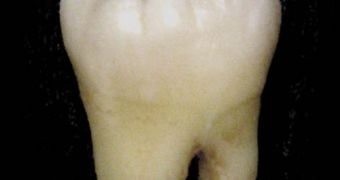Dentists are hopeful that, in the near future, they will be able to treat patients not with artificial dentures and fillings, but with artificially-grown teeth, manufactured in the lab. These new teeth would look exactly like the ones they are designed to replace, and could offer a much cheaper alternative to complex dental works. It remains to be seen whether the process will be refined to such a degree that it will be made available for the masses as well.
The innovation that allows for such ideas is the fact that researchers have managed to successfully create the strong component enamel, which makes up the outer layer of the teeth. Thus far, they have succeeded in creating theit inner parts, but no one has achieved designing the outer layer. Basically, geneticists have managed to identify the gene that causes the stuff to grow over our teeth in the first place, so they now hope to be able to condition living things into expressing more of this gene.
A study by a US team from the Oregon State University has revealed that a “transcription factor” called Ctip2 is the one responsible for the production of enamel, in cells called ameloblasts. It has a multitude of other purposes as well, including the human immune response and the early development of skins and nerves.
“It's not unusual for a gene to have multiple functions, but before this we didn't know what regulated the production of tooth enamel. This is the first transcription factor ever found to control the formation and maturation of ameloblasts, which are the cells that secrete enamel,” Dr Chrissa Kioussi, the lead researcher of the new study published in a recent issue of the journal Proceedings of the National Academy of Sciences, says. “A lot of work would still be needed to bring this to human applications, but it should work. It could be really cool, a whole new approach to dental health,” she adds.
“If you could find some way of growing ameloblasts that make enamel, you could find a way to repair teeth. Any gene like this is worth understanding. The more we learn about it the more we can use the information to make biological models of tooth repair,” tooth development expert Paul Sharpe, from the Dental Institute at King's College London in the UK, concludes by saying.

 14 DAY TRIAL //
14 DAY TRIAL //